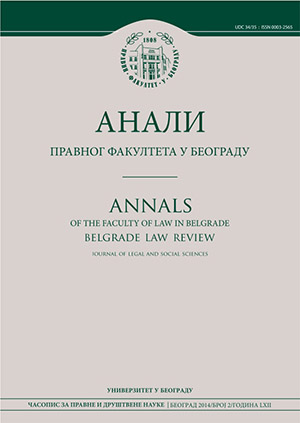КОНДИКЦИОНА ОДГОВОРНОСТ У РИМСКОМ ПРАВУ
CONDICTIONAL LIABILITY IN THE ROMAN LAW
Author(s): Valentina Cvetković-ĐorđevićSubject(s): History of Law, Civil Law
Published by: Правни факултет Универзитета у Београду
Keywords: Condictional liability; Liability for unjust enrichment; Good faith;
Summary/Abstract: Condiction refers to an action that originates in Roman Law and was used for the restitution of a thing found with the defendant unjustifiably (sine causa). The thing is commonly acquired by the defendant on the basis of plaintiff’s action which had unjustifiably transferred ownership over the thing to the defendant (datio). Pursuant to condiction, the defendant is liable for the acquired thing and the scope of his liability is determined as of the time of acquisition and not of the time of raising the condiction. Hence, the defendant is obliged to restore what he initially acquired and not what he possesses at time the condiction is raised. As opposed to the Roman Law’s condiction, in modern law of unjust enrichment the defendant is also liable for the property benefit that he sine causa acquired in any way, and he is obliged to compensate the quantum he possesses at the moment when the claim is raised. Although the scope of liability under Roman Law’s condiction and under contemporary unjust enrichment is established according to different criteria sometimes the same solution may be reached if defendant’s good faith (bona fides) is taken into account.
Journal: Анали Правног факултета у Београду
- Issue Year: 62/2014
- Issue No: 2
- Page Range: 229-243
- Page Count: 15
- Language: Serbian

